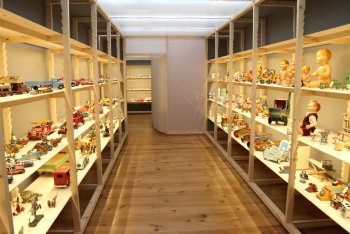Explore the best places
Heritage in Portugal
Museu de Arte Sacra
- heritage
Avenida Frei Heitor Pinto, 9
6200-176, Covilhã
Encontra-se junto ao Jardim Público num edifício projetado pelo arquiteto Raul Lino e apresenta mais de um milhar de peças que já não se encontram ao culto. Inclui obras de pintura, ourivesaria, escultura, paramentaria ou metais. Entre o seu vasto espólio, há peças de destaque como o Relicário do Santo Lenho, a imagem de Cristo Deposto ou o Menino Jesus da Cartolinha. Para além das salas de exposição permanente, tem uma sala de exposições temporárias e um jardim interior.
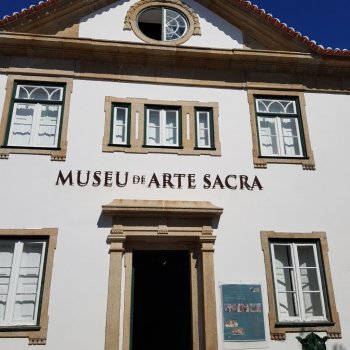
Elevador de Santo André
- heritage
Escadas de Santo André, 50
6200-055, Covilhã
Dotado com uma cabine panorâmica e de utilização gratuita, é um ótimo meio que facilita a ligação pedonal entre a Rua Marquês d'Ávila e Bolama e a Rua António Augusto de Aguiar. Junto ao elevador há uma longa escadaria que parece acentuar ainda mais o desnível. O Plano de Mobilidade Pedonal desta cidade, fértil em declives acentuados, contempla outros dois elevadores, um deles bem próximo deste, e um funicular.
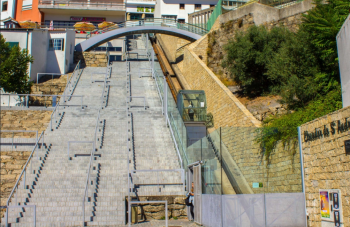
Museu do Queijo
- heritage
Rua dos Casaínhos
6200-591, Covilhã
The cheese Museum was opened in may 20011 and, since then, allows visitors, know the manufacturing process of the famous Serra Cheese. Through an enriched with 2D and 3D projections, the vistante discovers everything that involves the production of artisanal queijo da Serra: the olden days to this day! At the end, and then there's proof of dishes made with cheese and other regional products.
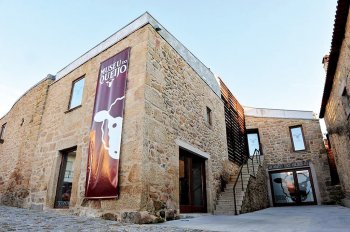
Ponte da Ribeira da Carpinteira
- heritage
Rua Marquês de Ávila e Bolama
6200-053, Covilhã
The footbridge over the river of a Carpenter, opened in 2009, is the work of architect Carrilho Grace. Is one of the tallest in Portugal, with 52 meters high and 220 meters long. It was built with the main objective to bring the city's residential neighborhoods that make up the urban core, as well as promoting mobility, thus avoiding the need to use public transport. Covilhã was distinguished by the magazine Travel & Leisure in January 2011, as one of the seven most interesting destinations in the world in terms of design due to this work of architecture.
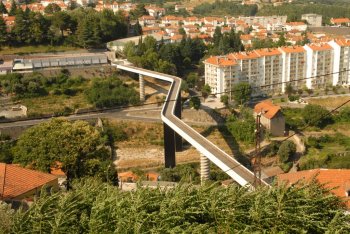
Igreja de Santa Maria Maior
- heritage
Rua Senhor da Paciência
6200-138, Covilhã
Neo-Baroque revival Church of longitudinal plant, consisting of a nave, a chancel narrower and lower, a side chapel, a Baptistry, a Bell Tower and some annexes. It was built in 1886 on the spot where once existed the ancient Church of Santa Maria do Castelo. In the interior, especially the altarpieces of gilt and neorrococós neoclassicists.
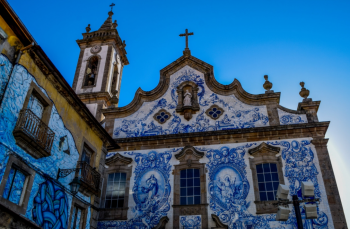
Muralhas da Cidade da Covilhã
- heritage
Rua do Norte
6200-153, Covilhã
This Castle has a Roman foundation, probably with origins on a Lusitanian Castro that suffered sackings and destruction throughout the time. From the primitive mediaeval fortress it only survived some chunks from the wall some of them integrated in others constructions and not always visible and traces from doors and towers: Door of Sun, Door of São Vicente, Comarca Arch and an octagonal turret. The stones from the Castle were later used to build bigger constructions such as the Royal Factory for Cloths and the Council Castle.
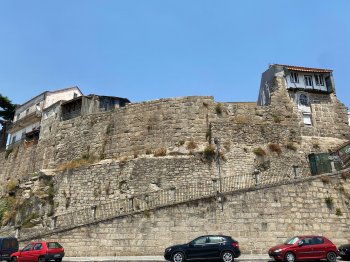
Museu de Lanifícios da Universidade da Beira Interior
- heritage
Rua Marquês D'Ávila e Bolama
6200-001, Covilhã
A science, techonology and territory museum with several sections. It aims to create an European network of information about the textle heritage.
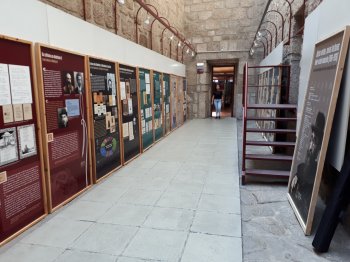
Praça de Touros do Souto
- heritage
Rua Padre José Miguel
6320-651, Sabugal
Praça de touros tradicional, onde decorrem as famosas Capeias Arraianas.
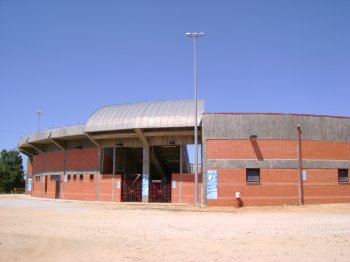
Chafariz Nobre da Praça de Camões
- heritage
Praça de Camões
4990-150, Ponte de Lima
Located in the Historic Center of Ponte de Lima, close to one of the main entrances to the town's wall, it was transferred to this location in 1929. The Renaissance style and execution are attributed to the famous Limiano Master João Lopes, o Moço.
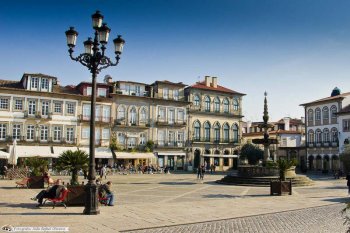
Museu do Brinquedo Português
- heritage
Largo da Alegria - Casa do Arnado
4990-154, Arcozelo
The Portuguese Toy Museum is located in Casa do Arnado, on the right bank of the Lima River, next to the Roman bridge. It features a permanent exhibition of toys of Portuguese origin, dating from the end of the 19th century and extending until 1986. You can also appreciate the different manufacturing techniques and raw materials used in their design. Do not leave without going through the magnificent garden to the "Sala das Brincadeiras" and the "Oficina do Brinquedo", as well as the space dedicated to temporary exhibitions.
